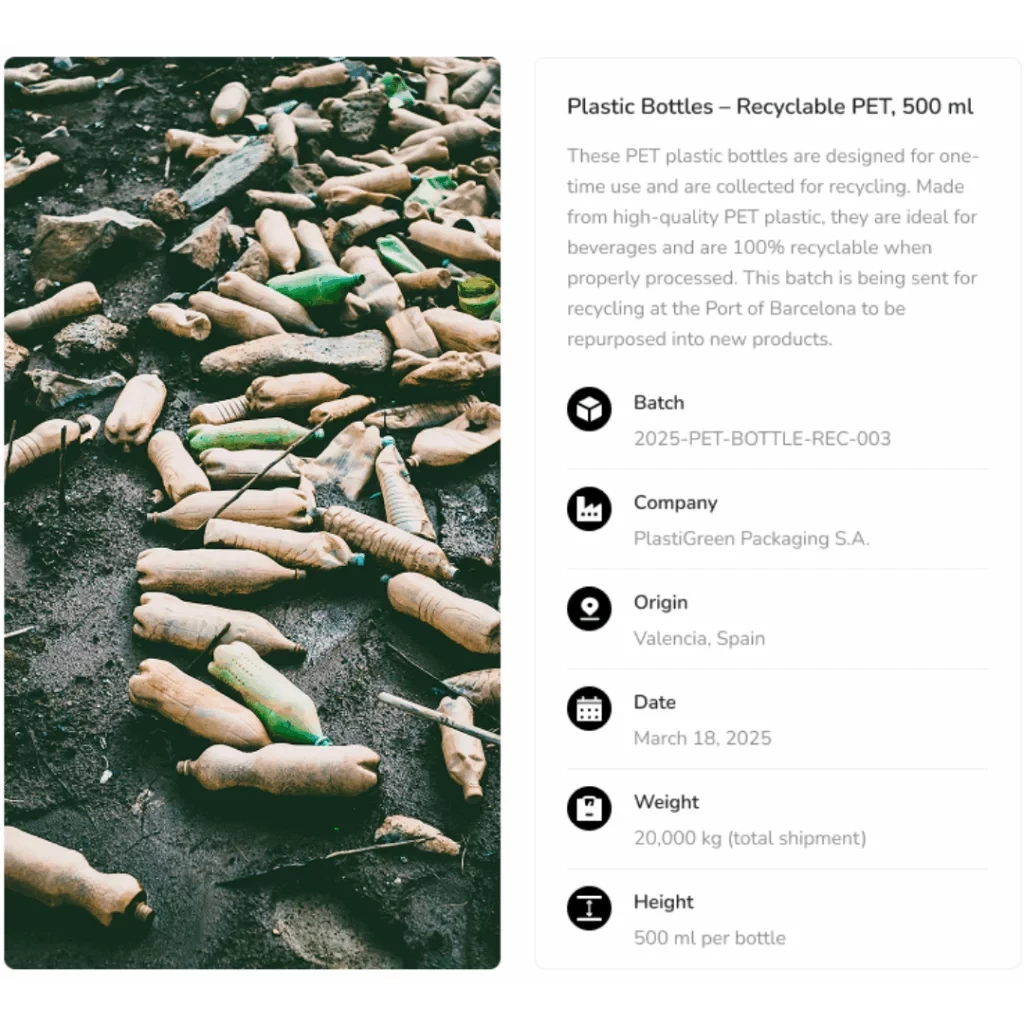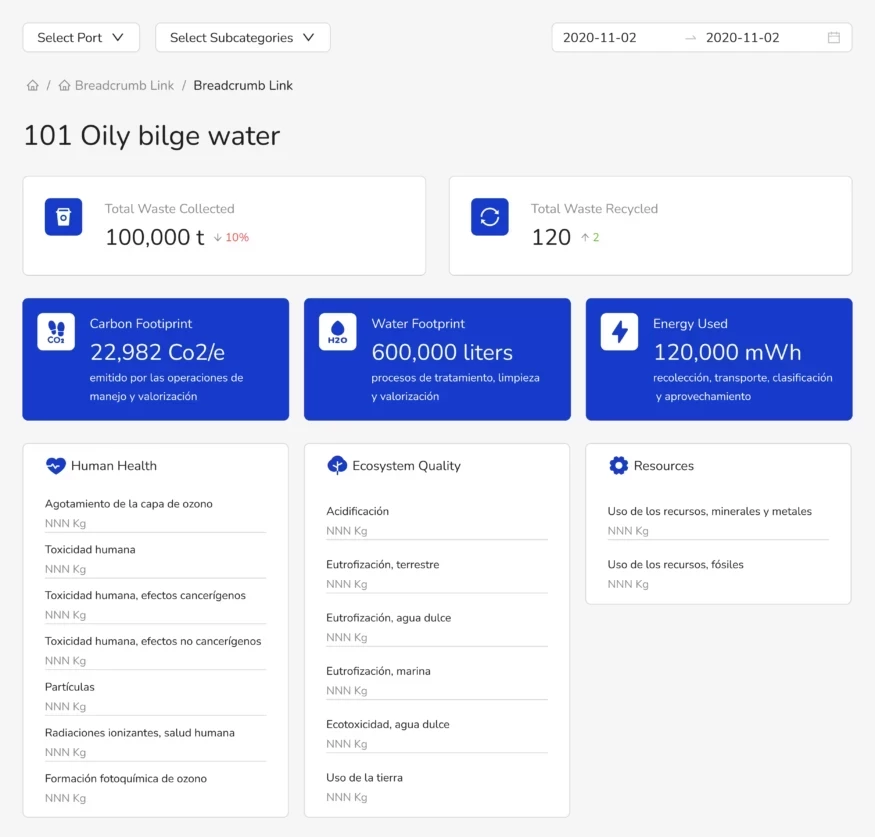PORTNET: Digital traceability to transform port waste into value
PORTNET: Digital traceability to transform port waste into value
The challenge of sustainability in ports
Ports are at the heart of international trade. More than 80% of the world's goods pass through them at some point in their journey, making these infrastructures strategic nodes for the global economy. But this centrality comes with enormous responsibility: that of minimize their environmental impact at a time when sustainability is no longer optional, but rather a regulatory, social and reputational requirement.
Among the many challenges facing ports, the waste management occupies a priority position. Ships generate large amounts of waste, from oily residues to plastics, sewage, and maintenance materials. Traditionally, this process has been marked by complex procedures, opaque records, and limited monitoring, which hinders both compliance with international regulations and the establishment of trust between the various actors in the logistics chain.
In this context arises PORTNET, the digital platform developed within the Ports 4.0 initiative, proposes a new way to address the problem. Its mission is clear: to digitize the entire waste management chain through blockchain, tokenization, and advanced data visualization tools. The objective is twofold: to guarantee waste traceability and transparency and, at the same time, provide ports with practical information that enables faster, safer, and more sustainable decision-making.
The Digital Waste Passport
One of the most notable innovations of PORTNET is the Digital Waste Passport, a unique identifier that accompanies cada residuo from its delivery at the port to its final treatment. Thanks to blockchain technology, all information is immutably recorded: the origin, the responsible company, the date, the LER code, the treatment applied, and the certificates that guarantee regulatory compliance.
The digital passport It also integrates environmental indicators such as carbon footprint, water footprint, and energy savings, providing a clear view of the impact of each waste product. It also offers complete traceability with a timeline and location of the various milestones (from collection to recycling), ensuring complete and transparent control of each process.
In this way, each residue ceases to be an element without traceability to become a documented, verifiable, and value-added flow. The result is a tool that reduces bureaucracy, strengthens trust between stakeholders, and makes it easier for ports to objectively demonstrate their commitment to sustainability.


Dashboards: from data to action
The PORTNET dashboards They allow real-time visualization of the environmental impact of port waste. They display global data such as passports issued, total weight managed, and number of producers, along with key indicators such as carbon footprint, water footprint, and energy consumed.
They also offer clear graphics on MARPOL waste recovery, differentiating between plastics, food scraps, oils, and other materials, and indicating which portion is recycled, incinerated, or converted into energy. Tables with LER codes complete the information, showing the weight and degree of recovery for each batch.
In this way, dashboards make waste management measurable and transparent, facilitating better decisions and reinforcing the ports' environmental commitment.
By converting complex data into visual and accessible information, dashboards allow each stakeholder (operators, authorities, and managers) to understand the situation at a glance and act more quickly, efficiently, and sustainably.

Strategic impact on port management
The adoption of PORTNET represents a paradigm shift for ports. The combination of Digital Waste Passport and intelligent dashboards transform a traditional process into a system based on data, traceability, and economic value.
For ports, this means greater operational efficiency and the ability to anticipate problems. For shipping companies, it ensures that the waste delivered will be managed rigorously and transparently. For authorities, it means a more agile and less costly monitoring tool. For recyclers, it offers access to precise information on the origin, composition, and treatment of waste, facilitating its classification, recovery, and efficient use. And for society, it constitutes a clear demonstration of commitment to sustainability.
The transition to circular ports cannot rely solely on stricter regulations; it requires technological solutions that turn waste into resources and data into decisions. PORTNET responds to this need by combining blockchain, tokenization, digital passports, and dashboards into a comprehensive platform that drives port sustainability and competitiveness.
In a world where information is power, the PORTNET Digital Waste Passport and dashboards are consolidated as the compass that will guide ports toward a more efficient, transparent, and responsible future.
Experts in digital innovation at your service
Discover how Blue Room Innovation transforms ideas into digital solutions with real impact and commitment to sustainability.
Are you ready to be part of the change?
Follow us
Copyright © 2024 Blue Room Innovation Privacy Policy - Legal Warning - Cookies Policy

